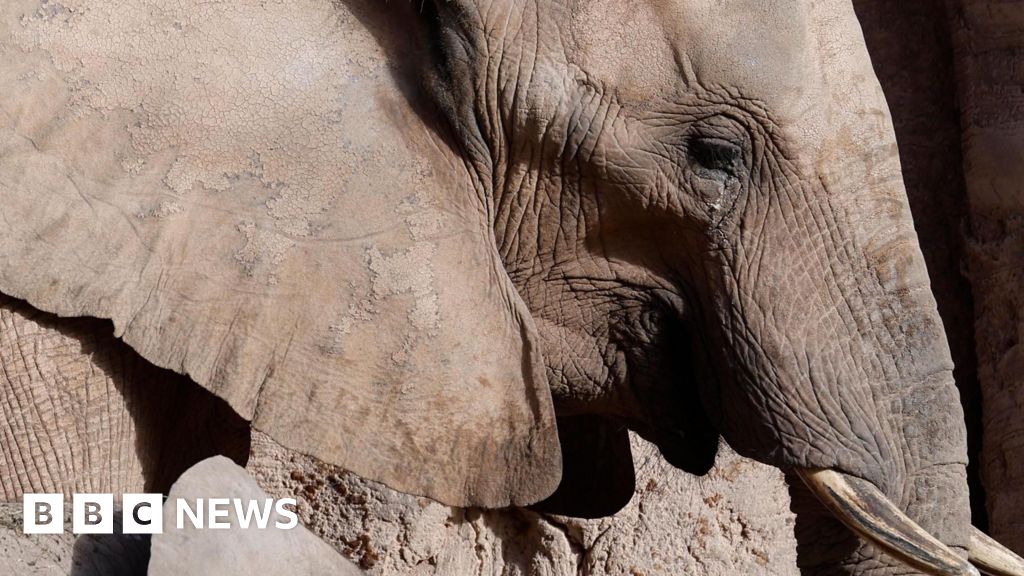ARTICLE AD BOX
 Image source, Showmax
Image source, Showmax
By Aaron Akinyemi
BBC News
Sassy, provocative African-made dramas could be key to potentially one of the biggest streaming markets in the world - and one new show is proving the point.
"Lights off at eight. No sex here," a teacher tells a new student in Youngins, set in fictional boarding school in South Africa.
But audiences have been learning that rules are there to be broken - and the Showmax series, with an episode released every week on the South African-based subscription streaming service, is a wild ride full of fun, danger, sex and violence.
"I would describe the show as captivating, relatable, authentic, fun, funny and fresh - but like South African fresh," Kealeboga Masango, who plays the role of head girl in the drama, tells the BBC.
And that is what is key - the show makers hope its African authenticity will set it apart, and it forms the basis of Showmax's ambitious business plan.
"We really go deep into the different cultures of South Africa - it's very beautiful watching not just black bodies being represented on screen, but South African bodies being represented," Youngins director Themba Mfebe tells the BBC.
"So it feels like my neighbour's kid, my sister's kid. It's like, I know these people. And most of the time, they're speaking in South African languages."
Image source, Getty Images
Image caption,Youngins director Themba Mfebe started out as a camera assistant
With 70% of sub-Saharan Africans being under the age of 30, Showmax, which also offers documentaries and Premier League football, wants to expand its market share in the African subscription video-on-demand space .
Other global streaming giants such as Amazon Prime are decreasing their investment in Africa and have cut jobs on the continent amid restructuring to focus on the European market.
But Showmax, owned by the MultiChoice Group - one of the continent's biggest pay TV operators - is doing the opposite by ramping up production with 21 new original African shows recently released.
Its chief executive Marc Jury says the target for their parent company, with millions of dollars of investment in new productions, is to expand to 50 million consumers across the African continent by 2028: "Our ambition is to be the number one streaming platform in Africa."
Rival streamer Netflix has also been steadily expanding its presence in Africa's video streaming market. Between 2016 and 2022, it invested $175m (£139m) in South Africa, Nigeria and Kenya.
In 2020, it also signed a lucrative multi-title deal with Nigerian production company EbonyLife, founded by acclaimed producer Mo Abudu, to create multiple original Netflix series and films.
Revenge thriller The Black Book, which it recently acquired, became the first ever Nigerian film to soar to number three on Netflix's worldwide film charts - watched by more than 20 million people in its opening weeks last year.
Image source, Anakle Films
Image caption,Nollywood veteran Richard Mofe-Damijo is the star of The Black Book, about police brutality and government corruption
Netflix says it has created around 12,000 jobs on the continent and plans to continue to invest in local creative economies and support more African storytellers.
"We are still in many ways at the inception stages of our investment journey, so it's doubly exciting to know we are poised to deliver even greater impact if we maintain our current momentum," Shola Sanni, Netflix's policy director for sub-Saharan Africa, has said.
But streaming technology can face challenges in African markets.
"There are not too many flat rate plans and a single movie consumes quite a lot of data," explains Ivan Biljan, from European video streaming company UniqCast.
He tells the BBC the lack of affordable and reliable broadband access and internet piracy are also significant hurdles for companies that want to sell video on-demand.
However, he is optimistic: "I think the future is bright for Africa because they have a lot of things that other markets, such Europe and America, don't.
"In the coming years, they will have 400-500 million new young tech-savvy customers who are new potential users and subscribers."
MultiChoice's Showmax hopes to take advantage of this by using new streaming technology, in a partnership with NBCUniversal and Sky, and also partnering with mobile phone company MTN South Africa to make streaming services more accessible with data bundle offers.
Over the next 12 months Showmax says it will launch more than 1,300 hours of original programming - a 150% increase in production output compared to the year before.
Image source, Showmax
Image caption,Youngins storylines also tackle sexuality and gender issues - with a non-binary student, played by Katlego Moloke, as one of the characters
Among their most-anticipated new series is Red Ink, created with Bomb Productions, the company behind the Oscar-nominated film Mandela.
There is also a 10-part crime series called Catch Me a Killer starring Game of Thrones actress Charlotte Hope about South Africa's first serial killer profiler.
To enable this boost in production, MultiChoice supports a 12-month programme to develop emerging African TV and film talent through hands-on industry experience.
"When I started out, it was the first year of it," says Mfebe about his training in 2018.
"I was a camera assistant and you learn from all the different departments. I also met a lot of people that I still work with today throughout the industry."
This African-centred approach to storytelling appears to be resonating with local audiences.
In 2022, nine out of Showmax's top 10 most-streamed titles in Ghana were all African-produced. In Kenya, South Africa and Nigeria, the majority of the top 10 most streamed titles were also African-made.
Showmax, which for the last nine years has operated in 44 sub-Saharan countries and currently produces original series for three core markets - South Africa, Nigeria and Kenya - will unveil its first original series from Ethiopia and Tanzania later this year.
Actor Lebohang Lephatsoana, who plays Youngins character Tumelo, sums up the love being shown for the high school drama: "Africans always gun for telling authentic stories that the audience is going to relate to.
"Africans are beautiful storytellers. If anything we're storytellers from when we get born," he tells the BBC.
The performer takes to song - with the official 2010 World Cup hit by Shakira and South African group Freshly Ground - to make his point: "It's time for Africa. Tsamina mina eh eh. Waka waka eh eh."

 10 months ago
1469
10 months ago
1469








 English (US) ·
English (US) ·